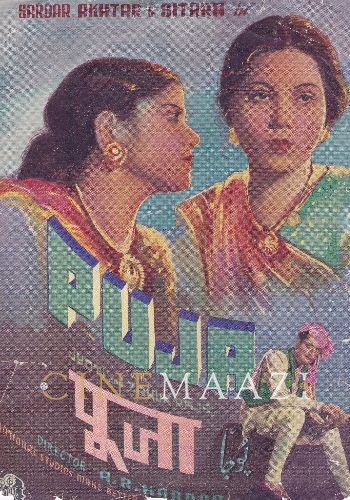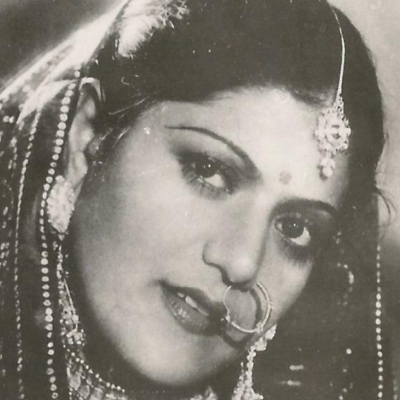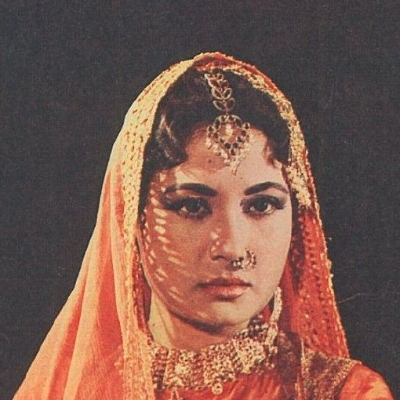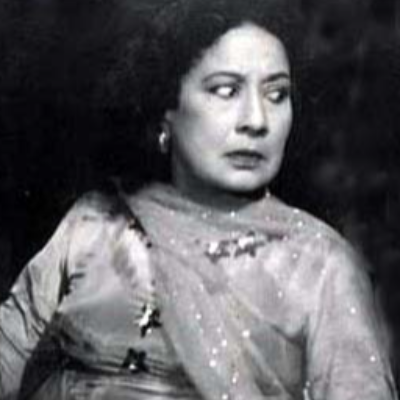This section is for paid subscribers only. Our subscription is only $3700/- for one full year.
You get unlimited access to all paid section and features on the website with this subscription.
Subscribe to read full article
This section is for paid subscribers only. Our subscription is only $37/- for one full year.
You get unlimited access to all paid section and features on the website with this subscription.
Not ready for a full subscription?
You can access this article for $2, and have it saved to your account for one year.
- Release Date1940
- GenreDrama, Social
- FormatB-W
- LanguageHindi
For full fifteen years had Lachchi watched the fruit of her womb grow - from babyhood to childhood and then to the full bloom of maidenhood. All these years she had suppressed the instincts of motherhood to safeguard the interests of her child. At last, she could control herself no longer. "Give me back my child!", she cried to her sister.
"Dare you call her your daughter before the world," was Rama's answer, "go, do the household work and leave the child to me who ought really to have been her mother." So with despair in her heart, hungry for the sound of the word, "Mother" from her daughter's lips, Lachchi goes back to her pots and pans.
Puja is the story of these two sisters, Rama and Lachchi. Daughters of Kesarbai of the village of Bansinagar, they had grown to marriageable age and now their mother and their guardian, Pandit Jaigopal, were busy with the problem of selecting a suitable husband for Rama. But while the elders were busy, the little God of love had already shot his arrow. Rama was deeply in love with Darpan, a youth from a neighboring village.
They seemed to be about to falsify the proverb that the course of true love never runs smooth, for Darpan managed to get the consent of Pandit Jaigopal and Kesarbai to his marriage.
The date was fixed, but when Darpan was returning home, his heart full of gladness, his horse took fright and threw him, resulting in a serious injury.
He had to be in bed for months. But worse than that, his father sternly refused to give his consent to the marriage. When even the proposal resulted in such a misfortune, he asked, would there be an end to the calamities that would follow when the marriage actually took place?
Darpan sent letter after letter to Rama's people, but his father intercepted them. On their side, Kesarbai and Pandit Jaigopal, despairing of getting new of Darpan, and with the fact of Rama's marriage already published, had, in order to save their name, to accept the offer of Thakur Balwant Rai.
Just when everything is settled, Darpan's servant comes with the news of him. Pandit Jaigopal, feeling insulted, tries a cruel joke and asks Darpan to come on the wedding day.
Darpan comes, rejoicing as a bridegroom, but his heart breaks when he realises the situation and is driven out by the guests at Rama's wedding. He asks Lachchi to request Rama to run away with him. But she replies that though her love was dead her duty still lived. She would not bring disgrace on her family.
Disappointed, Darpan asks Lachchi to meet him in the jungle at the same place that Rama used to do. She met him and he wreaks a cruel vengeance on her.
Kesarbai dies and Rama, now the wife of Thakur Balwant Rai, takes Lachchi to live with her. But the latter draws away from her sister, spending all her time moping and moaning in her own room. When the Thakur takes her to task for this, she gives no reply but leaves home at dead of night. No one knew of her meeting with Darpan in the jungle and its consequences.
She goes to Darpan and finds him in a sorry condition, a slave to drink and vice. He taunts her with Rama's treatment of him and refuses "to worship a broken idol".
Lachchi turns her back on the world and finds shelter with a pujarin at a jungle shrine where she fulfills the function with which every woman is born into this world. Rama, at last, finds Lachchi but in the very moment of reunion, discovers the secret that divides them forever.
Years pass and Rama, widowed, childless and ill, reconciles herself with Lachchi.
The two sisters live under the same roof, though their hearts and minds are divided. But one thing that unites them, one loyalty, in the cause of which each would have sacrificed anything.
Their souls and bodies are ready to be offered up in Puja to a creature of flesh and blood whom they have raised almost to the rank of divinity.
And so they grow from youth to maturity and then to old age, fighting a secret battle of wills between themselves.
At last, a day comes when the pretentious on which they had based their lives topple down like a house of cards and Bina, the child realizes that for fifteen years she has been treating her real mother as a mere servant.
And what of Darpan all this time? See on the screen the final climax of this tremendous drama.
[from the official press booklet]

Cast
-
Zahur Raja
Darpan -
Sardar Akhtar
Rama -
Sitara
Lachchi -
Jyoti
Bina -
Satish
Tulsi -
Sunalini Devi
Kesarbai -
Bhudo Advani
Binda -
M Shakir
Narayandas -
Bhag Singh
Pandit Jai Gopal -
Iqbal Bai
Pujaran -
Meena Kumari
Bina -
Ram Avtar
Shambhu
Crew
-
BannerNational Studios, Bombay
-
Director
-
Music Director
-
Lyricist
-
Cinematography
-
Editing
-
Sound Recording/ Audiography
-
Art Director/Production Design
-
Story & Dialogues














.jpg)



